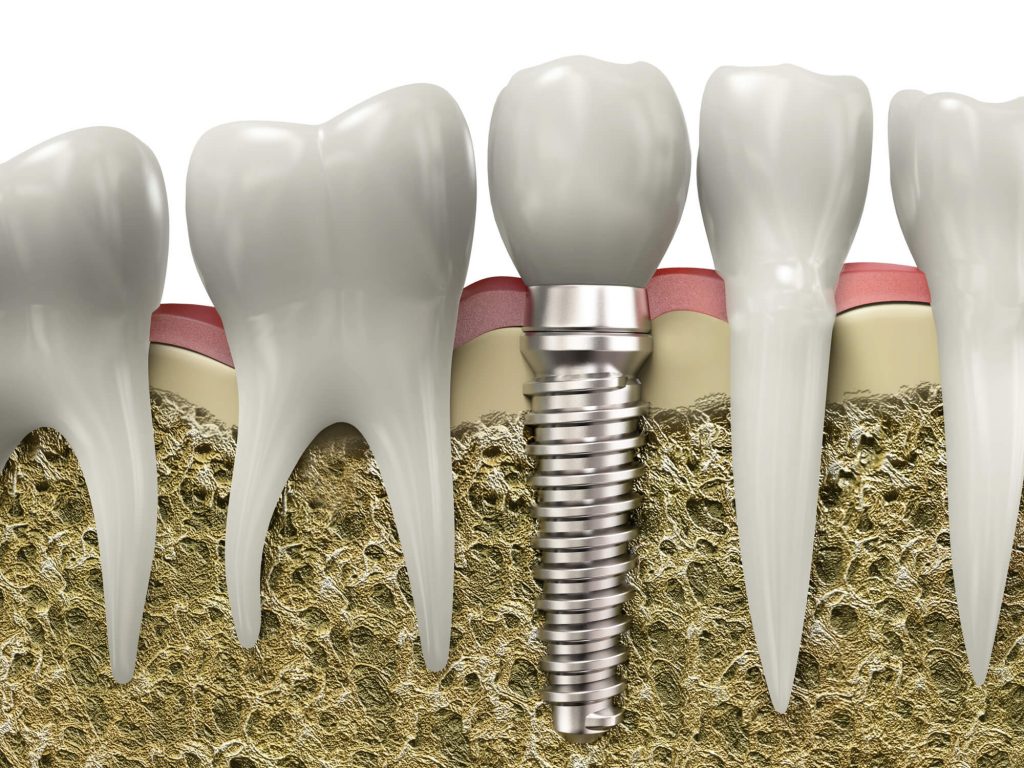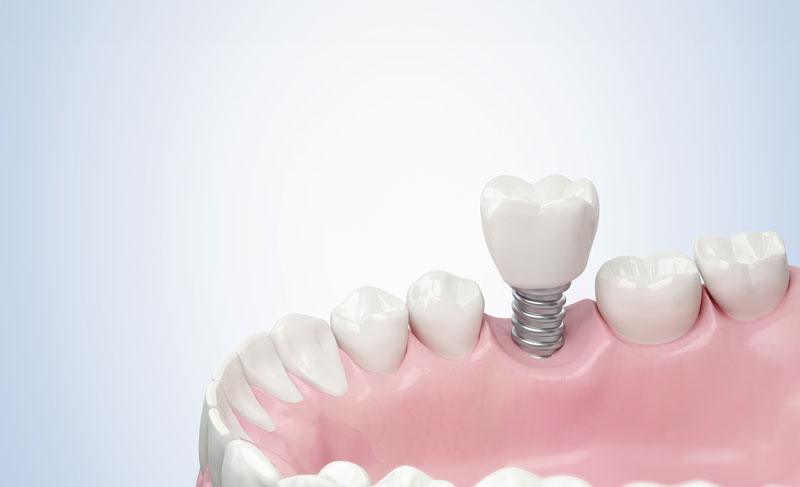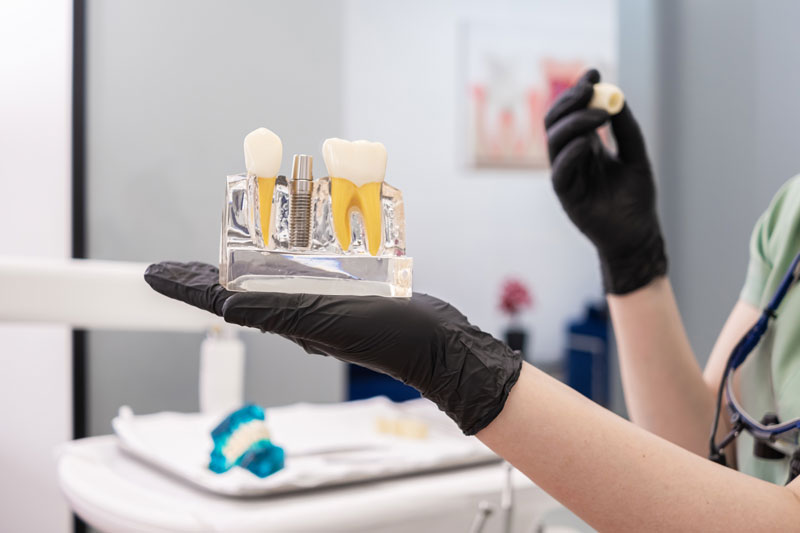Dental Blog - Greenacres, FL
Tips, Facts, And The
Latest In Dentistry

Understanding Dental Implant Risks and Complications

If you were to choose between dentures and dental implants in Boynton, we’re 100% certain that if you qualify, you will pick the latter. Dental implants are popular for replacing missing teeth because of their unique features. In dental implant surgery, your oral surgeon will embed screw-shaped metal posts into your jawbone to replace missing tooth roots.
On top of the metal, post is a connector that secures the artificial tooth in place. When the metal posts have successfully merged with your jawbone tissues, you can expect them to stay in place for a lifetime, giving you a natural-looking smile and a fully functional bite.

What are the Risks and Complications Involved in Dental Implant Surgery?
Why Are Dental Implants Better than Dentures or Bridgework?
According to a report from the American Academy of Implant Dentistry, more than 3 million Americans get dental implants yearly. Patients prefer dental implants to dentures and bridgework because implants have a longer lifespan and their features are similar to natural teeth in terms of aesthetics and function.
However, just like any other oral surgery, there are risks involved. Knowing the risks and complications is important before you commit to dental implant surgery.
Who Can Qualify for Dental Implant Surgery?
When you have one or more missing teeth, you may qualify for dental implant placement as long as you pass the eligibility criteria. Your dentist will carefully screen you for eligibility to reduce the risk of dental implant failure.
Patients who are generally healthy and committed to practicing good oral hygiene and routine checkups and those with healthy gums and sufficient jawbone are usually allowed to undergo surgery. Unfortunately, chronic smokers and uncontrolled chronic disorders such as heart disease and diabetes may need to be evaluated individually.

What Are the Possible Complications of Dental Implant Placement?
Osseointegration Failure
Osseointegration is the process of bone tissues growing around the metal implants to make them part of your jawbone. If this phase is unsuccessful, the dental implant will not be able to securely anchor the artificial crown in place, resulting in dental implant failure. In the event of a dental implant failure, the implant may feel loose and eventually fall out.
There are also instances where they need to be removed. Your dentist will determine if you could undergo surgery again or let you choose a different tooth replacement option.
Incorrect Implant Placement
Did you know that your oral surgeon can also make mistakes in placing your dental implants? Complications will ensue if the implant is embedded in the wrong angle or location. One potential problem would be a failure of the implant to fuse with your bone tissues.
If the implant is placed too close to its neighboring teeth, it can loosen or cause discomfort. When either of these two happen, you can choose to replace the implant or have it removed. We recommend you get a second opinion before you get new implants.
Are There Risks Involved?
Unfortunately, dental implant surgery does come with risks. Some of the risks involved, albeit rare, are the following:
- Sinus Damage – Underneath your nasal sinuses is your upper jaw. When you have missing teeth in your upper jaw, there’s a risk that the implant could penetrate the sinuses leading to a probable infection. When you exhibit signs of infection, let your dentist know immediately.
- Nerve Damage – Another possible complication of dental implant surgery is nerve damage, which is why before the surgery, your dentist will order X-rays to know the location of the nerves. If nerve damage occurs, the effects are usually lasting, so it’s best to discuss these risks before you undergo dental implant placement.
- Existing Tooth Problems – Dental implant surgery can also affect surrounding teeth. For example, if the nearby teeth are decaying or have root damage, then trauma from the surgery will only exacerbate the problem. Ideally, your dentist should thoroughly examine all your existing teeth and treat issues before placing the implants.
How Do You Reduce Risks and Complications Associated With Dental Implant Placement?
You can minimize your risk of potential dental implant failure by practicing good oral hygiene and visiting your dentist regularly for routine checkups and cleanings to ensure that your teeth and gums are healthy.
Having your mouth examined is also essential to check if you are an ideal candidate for dental implant surgery. Finding an experienced and skilled dental implant specialist is also very important. Although complications can happen, they are very rare. Dental implant surgery boasts a high success rate of up to 98%.

Are You Interested in Dental Implants in Boynton?
If, after weighing the risks, you’re still interested in dental implants, you’ve come to the right place. At Ferber Dental Group, we provide superior quality dental care to all our patients. We always strive to give them the best patient experience. Contact us today for an appointment.





